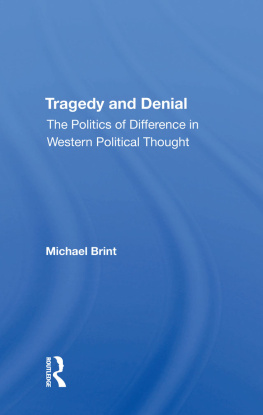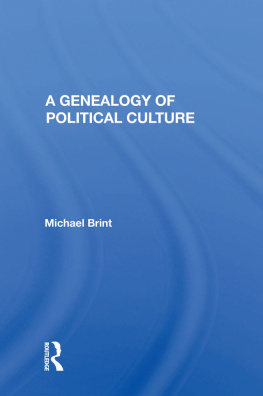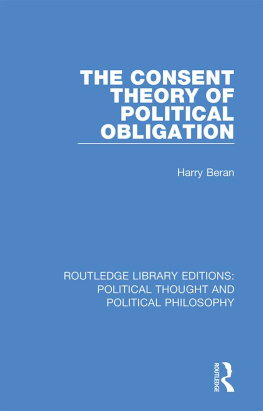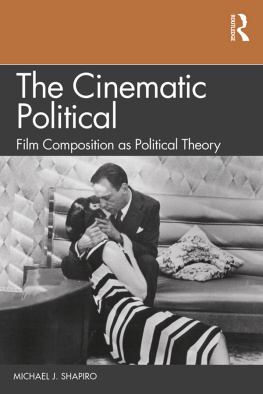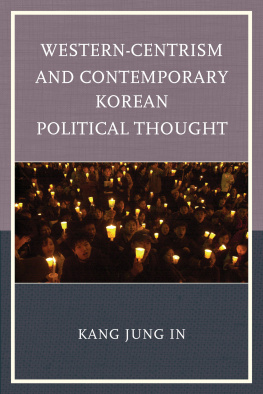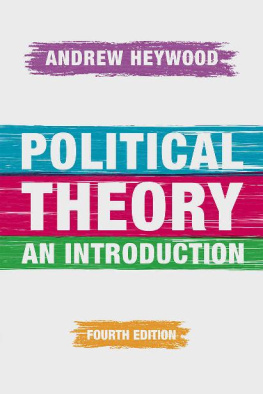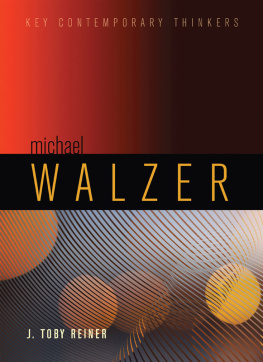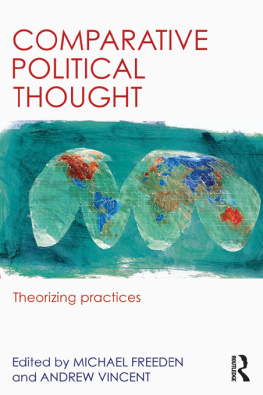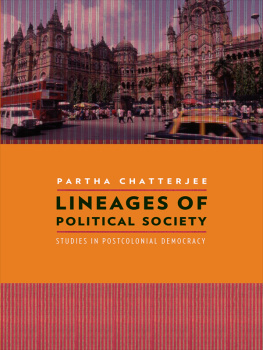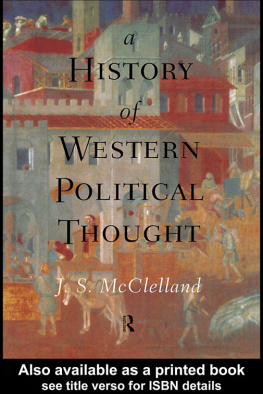First published 1991 by Westview Press, Inc.
Published 2018 by Routledge
52 Vanderbilt Avenue, New York, NY 10017
2 Park Square, Milton Park, Abingdon, Oxon OX14 4RN
Routledge is an imprint of the Taylor & Francis Group, an informa business
Copyright 1991 Taylor & Francis
All rights reserved. No part of this book may be reprinted or reproduced or utilised in any form or by any electronic, mechanical, or other means, now known or hereafter invented, including photocopying and recording, or in any information storage or retrieval system, without permission in writing from the publishers.
Notice:
Product or corporate names may be trademarks or registered trademarks, and are used only for identification and explanation without intent to infringe.
Library of Congress Cataloging-in-Publication Data
Brint, Michael.
Tragedy and denial : the politics of difference in Western political thought / Michael Brint.
p. cm.
Includes bibliographical references and index.
ISBN 0-8133-1225-6 ISBN 0-8133-1226-4 (pbk.)
1. Political science. 2. Tragic, The. I. Title.
JA74.B72 1991
320dc20
91-8926
CIP
ISBN 13: 978-0-367-21193-6 (hbk)
For their generous financial aid, I would like to express my gratitude to the University of Virginia Alumni Association, Summer Grants Program, and the Thomas Jefferson Memorial Foundation. I am also indebted to Spencer Carr, Cindy Hirschfeld, and Alice Colwell of Westview Press, whose competence, sensitivity, and intelligence proved invaluable in guiding this work to its final publication. To the kind editors of the Review of Politics and Political Theory, I am grateful for permission to republish parts of my essays on Rousseau. For their friendship, comments, and advice, I wish to thank David Thomas, Peter Euben, Jim Ceaser, Dante Germino, and Dick Rorty. To the many graduate and undergraduate students who have had to put up with my dramatic readings of political theory, I offer my sincere apologies and appreciation. In particular, my thanks go to Margaret Brabant, Reid Cushman, Meredith Garmon, Stuart Hall, Joseph Harder, David Hennigan, and Scott Roulier. In addition to his very helpful remarks, William Weaver also took on the task of preparing the manuscript for publication. Finally, and most importantly, for their laughter and love, I joyfully dedicate these essays to my wife, Camille, and to our son, Case Tyler.
Michael Brint
Charlottesville, Virginia
It is appropriate for founders of political communities to know the models according to which the poets must tell their tales.
Republic, 379a
The contours of our political culture are in large measure shaped by our diverse perceptions and understandings; by the ethical and political principles we invoke; by the rituals, customs, and ceremonies we observe; by the ways we explain and justify our actions; by the fundamental disagreements and conflicts we confront; and, not least, by the stories we tell about ourselves as a people. Some of the greatest stories ever told within and about our culture can be found, I shall argue, in the history of political thought.
But there is one kind of story that is too often neglected in this tradition. In telling their tales, political theorists have tended to ignore, evade, or cover up what A. C. Bradley once called the "essential fact" of tragedy. "It will be agreed," Bradley said, "that in all tragedy there is some sort of conflictconflict of feelings, modes of thought, desires, wills, purposes; conflict of persons with one another, or with circumstances, or with themselves; one, several, or all of these kinds of conflict as the case may be." The tragedy is that these conflicts are not so much wars of good with evil as they are wars of good with good.
At best, political theorists have tended to blink at such contests of values. Some simply refuse to recognize the existence of the clash between competing conceptions of the good. By logic or definition, they insist, the good cannot conflict with itself. But as long as our beliefs are contestable or corrigible, as long as we remain bound by the ethical indeterminacy of human life, we will find ourselves confronted by different and contending structures of belief, ways of life, spheres of cultural value, and moral descriptions of our social and political practices. To be forced to choose between two desirable, compelling, and justifiable but incompatible courses of action is an inexorable part of the repertoire of human experience.
Others, who acknowledge the existence of different conceptions of the good, argue that such goods can be calibrated or weighed through principle, procedure, priority rules, or community consensus. The metaphor of balancing goods is often used in these cases of adjudication. But if the values in question are distinct, then it is difficult to see what system of calibration or weight one can use to balance them. In fact, what is being balanced is not the different values in conflict but weights relative to some other standard into which these values have already been converted. In other words, the values in question in tragic conflicts are not different in relation to a presumed standard of weight and measure but in relation to each other. They constitute rival ways of describing our ethical and political actions. Because they are different, tragic conflicts defy such easy solutions as those predicated on a standard of conversion and evaluation.
Finally, throughout the Western political tradition, we find prescriptive schemes that are dedicated to banishing tragedy itself from the human domain. If we could but live in accord with the principles of unity, harmony, and synchronicity indicated, such thinkers contend, we could once and for all rid tragedy from the experience of human life. Although this desire to eliminate human tragedy might be described as the oldest and most noble goal of political thought, it could also be described as its most enduring failure. Such prescriptive schemes fail for the same basic reason the preceding descriptive proposals fail. They all deny the significance of relevant moral differences.
Rooted as tragedy is in the reality of human differences of values and interests, one simply cannot rid human life of it through philosophical presumption. To refuse to face this reality is a failure of political nerve. It is not merely that a world devoid of differences is a world that cannot be entertained in practice. Rather, the problem is that even if we could bring such a world into being, we would be better served by a world that endorsed and respected our ethical differences, even if by the very nature of these differences, we could not escape tragedy.
This book is dedicated to critically examining tragedy and its denial in the Western political tradition. In the first part of this work, I examine the denial of differences in the tales told by Plato and Rousseau. I begin with the complicated story of Plato's Republic as an antitragic narrative told in an ironic mode. In less technical terms, I emphasize the ironic stance Plato takes in relation to the antitragic story he has Socrates tell. Concentrating on this ironic aspect of analysis, I offer a reading of the Republic as a text that simultaneously constructs and deconstructs itself, a story that both tells and untells itself. Before I more explicitly take up the themes of tragedy and antitragedy in relation to the Republic, let me say a few words about irony, a subtheme that will arise more than once in the Dases that follow.

